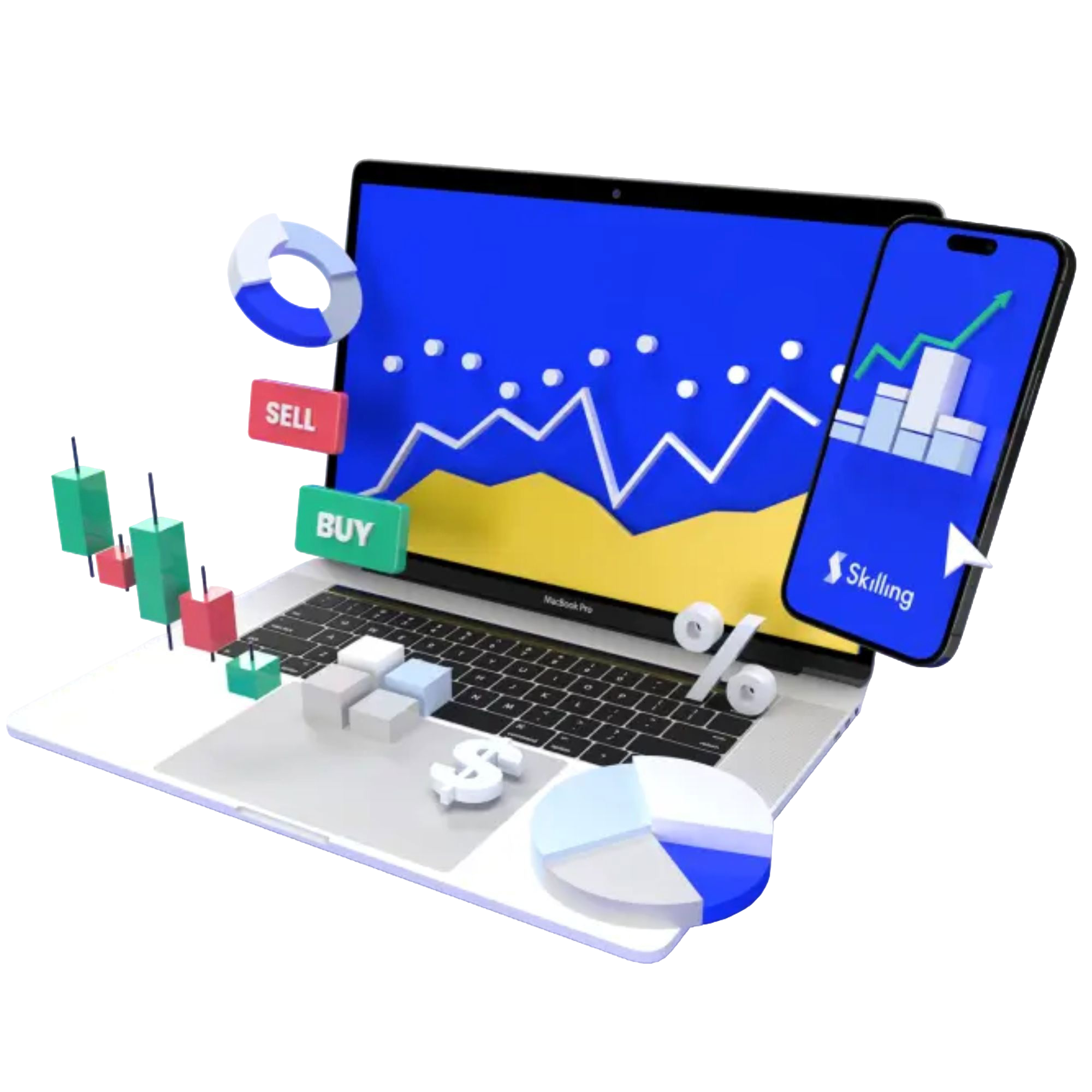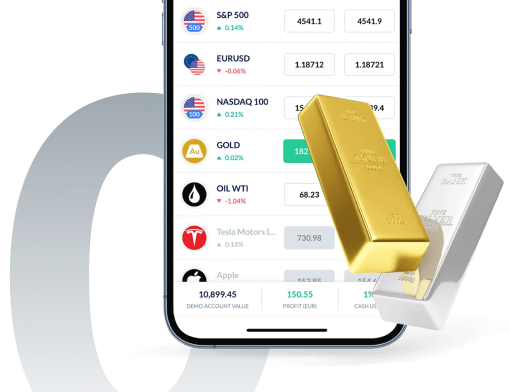Access 1,200+ global CFDs instruments.
Access a plethora of trading opportunities across the financial markets.

Access 1,200+ global CFDs instruments.
Access a plethora of trading opportunities across the financial markets.

Have you ever imagined engaging with the stock market without the need to physically possess the assets you trade? If this concept intrigues you, then Contracts for Difference (CFDs) may be worth your consideration.
A CFD functions as a contractual agreement between a trader and a broker, allowing investors to speculate on the price movements of various financial instruments, including forex pairs, indices, and individual stocks. The profits or losses you incur are based on the difference between the contract's buying and selling prices.
However, jumping straight into CFD trading isn't as straightforward as it seems. To effectively navigate the markets, you'll need to undertake several preliminary steps:
- Select a CFD Broker : Choosing the right broker is crucial to your trading success.
- Open a Demo Account : Create a free demo account to familiarize yourself with the platform and trading mechanics without risking real money.
- Learn to Read Charts : Understand real-time graphs and utilize tools to identify potential trading opportunities.
- Consider Fundamental Factors : Recognize the broader economic elements that can impact market movements.
- Understand Leverage and Margins : Educate yourself about how leverage works and the implications of margin trading before you commit actual funds.
This beginner's guide to CFD trading aims to provide clear, jargon-free insights into trading shares, commodities, and indices using CFDs.
Practice with a Demo Account
Try our demo account and experience real market conditions.

Essential terminology for CFD trading newbies
Before you plunge into CFD trading, it's vital to grasp the fundamental terminology associated with this market. Familiarity with these terms will enhance your understanding and decision-making:
| Terms | Definitions |
|---|---|
| Margin | The amount required to maintain your open positions with your CFD broker. |
| Leverage | The ratio of leverage offered by brokers, allowing traders to operate leveraged CFDs. For example, a 10:1 ratio means that for every £1 invested, potential profits or losses are magnified tenfold. |
| Commodities | CFDs on commodities allow you to trade the underlying values of physical assets like gold, oil, or agricultural products. |
| Indices | Trading indices through CFDs allows speculation on major stock market indices, such as the UK100 and US30. |
| Going Long | Taking a buying position, expecting the asset's price to rise and later selling at a profit. |
| Short Selling | Taking a selling position, expecting the asset's price to decline, with the goal of repurchasing at a lower price for a profit. |
| Balance | The total cash available in your trading account, accounting for all closed positions. |
| Equity | The current value of your trading account, including the funds available for investment. |
| Overnight Fees | Charges incurred by your CFD broker for holding open positions overnight. |
| Stop Loss | A conditional order that closes your position if the asset’s price drops to a specified level, limiting potential losses. |
| Take Profit | A conditional order that automatically closes your position when the asset reaches a specified profit level. |
| Slippage | The difference between the expected price of a trade and the actual price at which it is executed. |
| Trailing Stop | A dynamic stop-loss order that adjusts itself as the asset price moves in your favor. |
Pro tips and strategies for aspiring CFD Traders
Implement stop-loss orders
Using stop-loss orders is an excellent way to manage risk and minimize potential losses. They serve to protect your trading capital, particularly important for beginners. With these orders in place, you can trade without constantly monitoring your positions.
Practice with demo accounts
Before investing real money, it's advisable to get comfortable with your broker's platform and tools through a demo account. This risk-free environment will help you understand market dynamics and refine your strategies.
Manage your leverage
While leveraging can amplify your potential returns, it also increases your risk exposure. Limiting the amount of leverage you use provides more room for maneuvering, should the market move unfavorably.
Develop a trading strategy
Having a clear trading plan is essential for success. A well-defined strategy helps prevent impulsive decisions and overtrading, ensuring you stick to your original trading goals.
What's your Trading Style?
No matter the playing field, knowing your style is the first step to success.

Trade Demo: Real trading conditions with zero risk
Trade risk-free on Skilling’s award winning platforms with a 10k* demo account.

Key factors for successful CFD trading
There are several strategies to enhance your trading skills and increase your chances of long-term success in the CFD markets:
Understand trading psychology and risk management
Trading can be an emotional endeavor. Successful CFD traders acknowledge this and develop a strong understanding of risk management to mitigate the psychological impacts of trading. They remain calm and disciplined, applying various risk management tools to manage their emotions effectively.
Learn from mistakes
Analyzing both successful and unsuccessful trades is vital for improvement. The most accomplished CFD traders often maintain trading journals to reflect on their experiences, helping them refine their strategies for future trades.
Focus on risk-reward ratios
Effective CFD traders understand the importance of the risk-reward ratio when crafting their trading strategies. By balancing potential risks against the expected rewards, they increase their chances of achieving sustainable profitability.
Georges Soros famously said, “It’s not about whether you’re right or wrong that’s important, but how much money you make when you’re right and how much you lose when you’re wrong.”
Trade Demo: Real trading conditions with zero risk
Trade risk-free on Skilling’s award winning platforms with a 10k* demo account.

Expanding your knowledge in CFD trading
Knowledge is the cornerstone of successful investing, particularly in the realm of CFDs. While grasping CFD trading strategies can feel overwhelming, educating yourself on the available tools, market behavior, trading psychology, and effective strategies can significantly bolster your potential for profitable trading.
We've curated numerous educational resources covering the fundamental aspects of CFD trading. Although these guides are not intended as direct investment advice, they provide valuable insights into the characteristics that define successful traders.
By investing time in learning and practicing, you’ll be better equipped to navigate the CFD landscape and make informed trading decisions.











